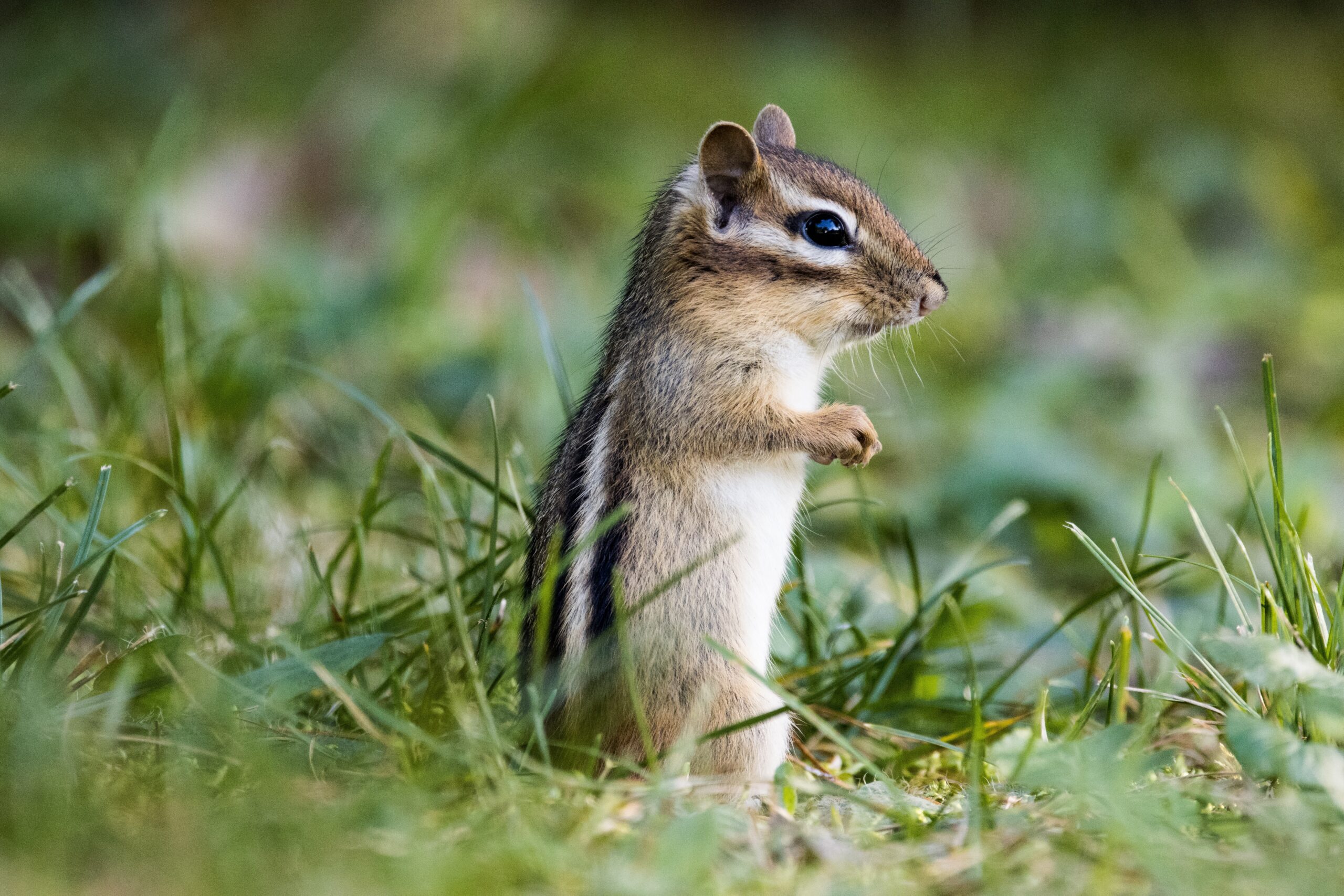Chipmunks Chirp: Discover Their Secret Communication Sounds
Have you ever paused to listen to the quick, sharp sounds that chipmunks make? Those tiny chirps might seem simple, but they hold fascinating secrets about how these little creatures communicate.
If you’ve ever wondered why chipmunks chirp or what their sounds mean, you’re about to discover surprising answers that will change the way you hear the outdoors. Keep reading, and you’ll unlock the hidden language of chipmunks right in your own backyard.
Chipmunk Vocalizations
Chipmunks use vocal sounds to talk with each other. Their chirps are small but full of meaning. These sounds help chipmunks stay safe and find friends. Listening closely reveals a rich language of chirps and calls.
Types Of Chirps
Chipmunks make different chirps for different reasons. One common chirp is a short, sharp call. This sound warns others about danger nearby. Another type is a soft, quick chirp. Chipmunks use this to signal they are near or safe. Some chirps are longer and more complex. These help chipmunks attract mates or mark their territory.
Purpose Of Sounds
Chipmunk chirps help them survive in the wild. They warn of predators like hawks or snakes. These sounds also keep groups together and avoid fights. Chirping helps chipmunks find mates during the breeding season. Overall, vocalizations play a key role in chipmunk life and safety.

Credit: musicofnature.com
Communication In The Wild
Chipmunks rely on sounds to live and survive in nature. Their chirps help them share important information quickly. These small animals use different calls for different situations. Each sound tells a story in the wild.
Understanding these calls helps us learn how chipmunks interact daily. Their communication is simple but very effective.
Warning Signals
Chipmunks use loud chirps to warn about danger. These sharp sounds alert other chipmunks nearby. The calls get stronger if a predator is close. This helps others hide or run fast. It is a quick way to stay safe.
Mating Calls
During mating season, chipmunks make soft, repeated chirps. These sounds attract mates and show readiness to reproduce. The calls can vary between males and females. This helps chipmunks find the right partner. The chirps also build bonds between them.
Territorial Messages
Chipmunks use chirps to mark their territory. They make these sounds to warn others to keep away. The calls are clear signs of ownership. This stops fights and keeps peace. It also helps chipmunks protect their food and homes.
Sound Production Mechanism
Chipmunks produce their chirping sounds through a special mechanism in their bodies. These sounds help them communicate with each other. Understanding how chipmunks create these noises reveals interesting details about their behavior and survival.
The sound production involves body parts working together to make clear and sharp chirps. Each chirp carries a message, whether it is a warning or a call for attention.
Anatomy Behind Chirping
Chipmunks use their larynx, also called the voice box, to create sounds. Air passes through the vocal cords, making them vibrate. These vibrations produce the chipmunk’s chirp. The shape of the vocal cords affects the pitch and tone of the sound.
The mouth and tongue help shape the sound further. Tiny muscles control the opening and closing of the mouth. This control changes the sound’s clarity and volume. Even small changes in muscle movement can alter the chirp’s meaning.
How Sounds Vary
Chipmunk chirps change depending on the situation. A quick, sharp chirp signals danger or a threat nearby. Longer chirps may be used for attracting mates or marking territory.
Young chipmunks have softer and less frequent chirps. Adults produce louder and more frequent sounds. Each chipmunk has a unique chirp pattern that helps others recognize it.
Listening To Chipmunk Calls
Listening to chipmunk calls offers a unique way to connect with nature. These small animals use chirps and chatter to communicate. Their sounds tell stories about their mood, location, and safety. Paying attention to chipmunk calls can make outdoor walks more interesting. It also helps you understand these lively creatures better.
When And Where To Hear Them
Chipmunks are most vocal during the day, especially in the morning. Early hours bring the highest chance to hear their calls. Look near wooded areas, parks, and gardens. They often call from tree branches or on the ground. Listen carefully near bushes or logs where they hide.
Interpreting The Sounds
Chipmunk calls vary based on their needs. Short chirps may signal alertness or danger nearby. Continuous chattering often means they feel safe and are socializing. High-pitched calls can warn others of predators. Each sound helps chipmunks stay safe and connected with their group.
Chipmunk Behavior And Sounds
Chipmunks are small, lively animals known for their quick movements and distinct sounds. These creatures use chirps and other noises to communicate with each other. Understanding their behavior and sounds helps us learn how they live and interact in nature.
Social Interactions
Chipmunks are mostly solitary but communicate through chirps. These sounds help them mark territory and warn others. They use different calls to show curiosity or friendliness. During the breeding season, chipmunks may become more social. Young chipmunks learn calls from their mothers. Chirping helps maintain distance and avoid fights.
Response To Threats
Chipmunks use sharp chirps to warn of danger. These warning sounds alert nearby chipmunks to predators. The louder and faster the chirps, the greater the threat. Chipmunks also freeze or dash to safety after making noise. Their calls confuse predators and protect their burrows. This quick response increases their chances of survival.

Credit: wildernessseeker.com
Scientific Research On Chipmunk Sounds
Scientists study chipmunk sounds to understand their behavior and communication. These small animals use chirps and calls to warn of danger, find mates, and mark territory. Research helps us learn how chipmunks interact in nature and respond to threats. It also shows the complexity of their vocal signals.
Recent Studies
Recent studies focus on the meaning of different chipmunk chirps. Researchers record sounds in forests and analyze their patterns. They found some chirps signal predators, while others invite mates. Studies show chipmunks change calls based on the situation. This helps them survive and communicate clearly.
Technological Advances
New technology improves how scientists study chipmunk sounds. High-quality microphones capture even the quietest chirps. Computer software breaks down calls into detailed parts. This allows precise analysis of frequency and duration. Technology helps track chipmunks over long times and large areas. It reveals more about their social lives and habits.

Credit: www.youtube.com
How Smart Pets Lover Can Help You with Chipmunks Chirp
Learning from Chipmunks’ Chirps: A Natural Classroom
Understanding chipmunks’ chirp patterns opens a window into their fascinating world of communication and behavior. By paying close attention to their vocalizations and the sound production mechanism, pet parents and nature enthusiasts alike can sharpen their observational skills and deepen their connection with wildlife.
For those curious about animal sounds, listening to chipmunk calls offers a practical way to explore how animals convey emotions and warnings in the wild. It’s a gentle reminder from Smart Pets Lover that every chirp carries a story worth decoding—just like the wag of a dog’s tail or the purr of a cat.
- Try recording chipmunk chirps during outdoor walks to notice variations in tone and timing.
- Compare these sounds with documented scientific research to learn what each chirp might mean.
- Use these insights to enhance your understanding of animal communication, enriching your role as an informed pet parent.
For more guidance on observing and interpreting animal sounds, feel free to reach out to Smart Pets Lover’s community support at [email protected]—because every chirp, purr, and wag deserves thoughtful attention.
Frequently Asked Questions
Why Do Chipmunks Chirp Frequently?
Chipmunks chirp to communicate danger, attract mates, and mark territory. Their chirps serve as warnings or social signals within their environment.
What Does A Chipmunk’s Chirp Sound Like?
A chipmunk’s chirp is a high-pitched, sharp series of short notes. It often resembles bird calls or quick “chip-chip” sounds.
When Do Chipmunks Use Chirping Sounds Most?
Chipmunks chirp most during the day, especially when alert or threatened. They are active and vocal during feeding or territorial disputes.
Can Chipmunks’ Chirps Indicate Specific Threats?
Yes, chipmunks use different chirps to signal predators like hawks or snakes. Each chirp warns others about specific dangers nearby.
Conclusion
Chipmunks chirp to communicate with each other. Their sounds help them stay safe and find food. These small animals use chirps to warn about danger. Listening closely reveals their busy, lively world. Next time you hear their calls, remember their meaning.
Chipmunks’ chirping shows how nature connects all creatures. Understanding these sounds brings us closer to wildlife. Simple chirps tell stories of survival and care. Nature’s small voices have big messages to share.





